Are you feeling frustrated with your housing association and unsure how to voice your concerns? Writing a formal complaint letter can be an effective way to communicate your issues and seek resolution. In this article, we'll explore a simple yet powerful template to guide you through the process and ensure your message is clear and professional. Ready to take the first step toward addressing your housing association grievances? Let's dive in!
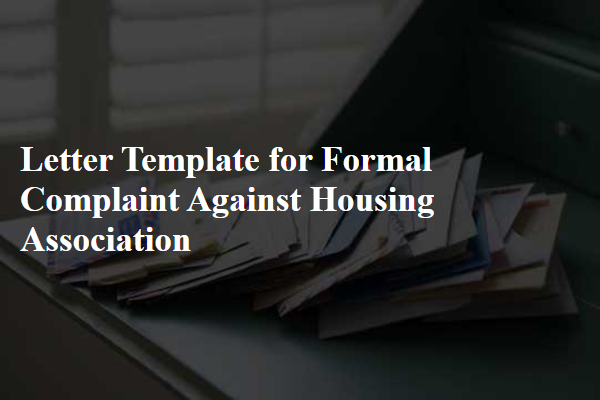
Formal tone and respectful language.
The housing association's failure to address maintenance issues in a timely manner has created significant distress for tenants at Maplewood Apartments. Water leaks, reported multiple times since March 2023, have led to mold growth in several units, posing health risks for residents. Additionally, the heating system's malfunction during the winter months, particularly in January 2023, resulted in uncomfortable living conditions, with temperatures dropping below the required 18 degrees Celsius. Emergency repair requests, filed through the association's online portal, received no response within the expected timeframe. The unresponsiveness to urgent safety concerns raises questions about the association's commitment to fulfilling its duty of care to its tenants.
Clear subject line indicating the purpose.
A formal complaint against a housing association typically requires clear articulation of the specific issues faced. Residents may experience delays in maintenance requests, inadequate communication regarding property management, or poor living conditions affecting health and safety. The formal complaint should outline specific incidents, dates of communication, and reference to tenancy agreements. Evidence may include photographs, emails, or correspondence records to strengthen the case. A well-structured complaint ensures that the housing association understands the urgency and seriousness of the issues, prompting a swift resolution.
Detailed description of the issue or complaint.
Persistent leaks in the ceiling of apartment 3B within the Riverside Housing Association property have resulted in significant damage, leading to mold growth (which can impact health) and compromised structural integrity. These leaks, first reported on January 5, 2023, originated from a faulty roof installed during renovations in 2022. Despite multiple follow-up requests for repair submitted via email and phone, no action has been taken by the maintenance team, including lack of proper assessment and remediation efforts. The property, located on Maple Street in Brookfield, has seen an increase in moisture levels (exceeding safe thresholds) which poses risks to residents' well-being and property value. The housing association's negligence in addressing this issue violates housing regulations outlined in the 2016 Housing Health and Safety Rating System (HHSRS), necessitating urgent action.
Specific dates and times of incidents.
A formal complaint against a housing association can highlight various issues, such as maintenance failures or communication problems. Complaints often include specific details that substantiate claims, like dates and times of reported incidents. For instance, on January 15, 2023, at 10:30 AM, a plumbing leak was reported, which remained unresolved for over a week, leading to water damage and mold growth. Notifications sent on January 18 and 20 failed to elicit any response from the maintenance team. Multiple attempts to contact the housing association's office, located at 45 Urban Street, resulted in unreturned calls and emails. Persistent issues have created significant discomfort and challenges in daily living. Proper documentation is vital to support claims and advocate for prompt resolutions.
Desired resolution or action requested.
The housing association's negligence regarding the maintenance of residential properties has resulted in multiple issues affecting tenants' quality of life. Poorly maintained plumbing systems, such as leaks from pipes installed in the 1980s, can lead to dampness and mold accumulation, impacting health. Inadequate heating systems often result in tenants enduring temperatures below 18 degrees Celsius during winter months, violating local housing regulations. Immediate actions requested include a comprehensive inspection of all plumbing and heating systems within the properties, timely repairs to address existing issues, and a plan to ensure future maintenance is conducted regularly to prevent similar situations. These measures aim to restore the living conditions promised in tenancy agreements and comply with housing standards and regulations.
Letter Template For Formal Complaint Against Housing Association Samples
Letter template of formal complaint regarding substandard living conditions with housing association.
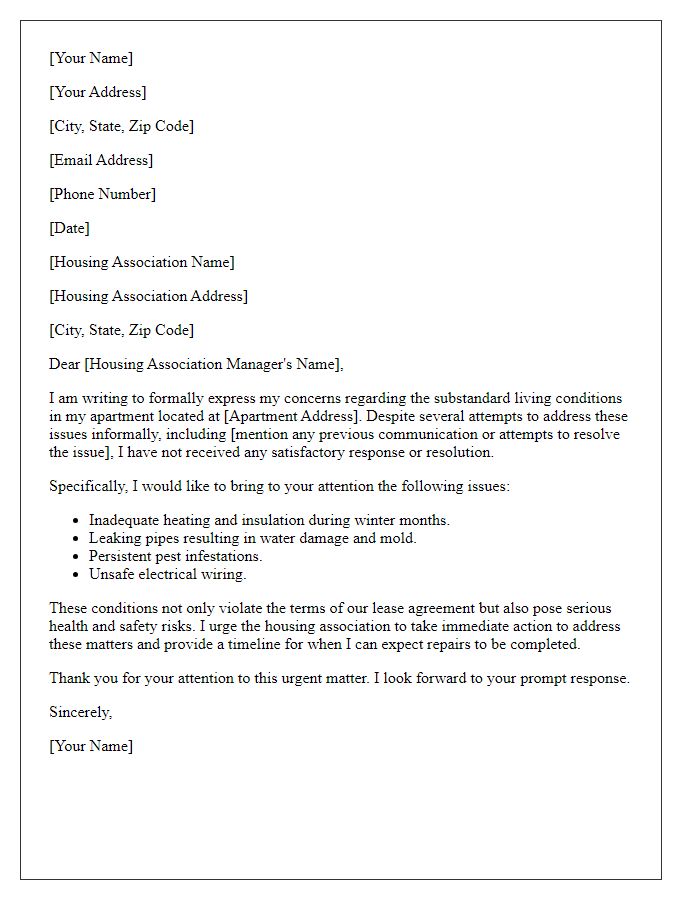
Letter template of formal complaint about delayed repairs from housing association.
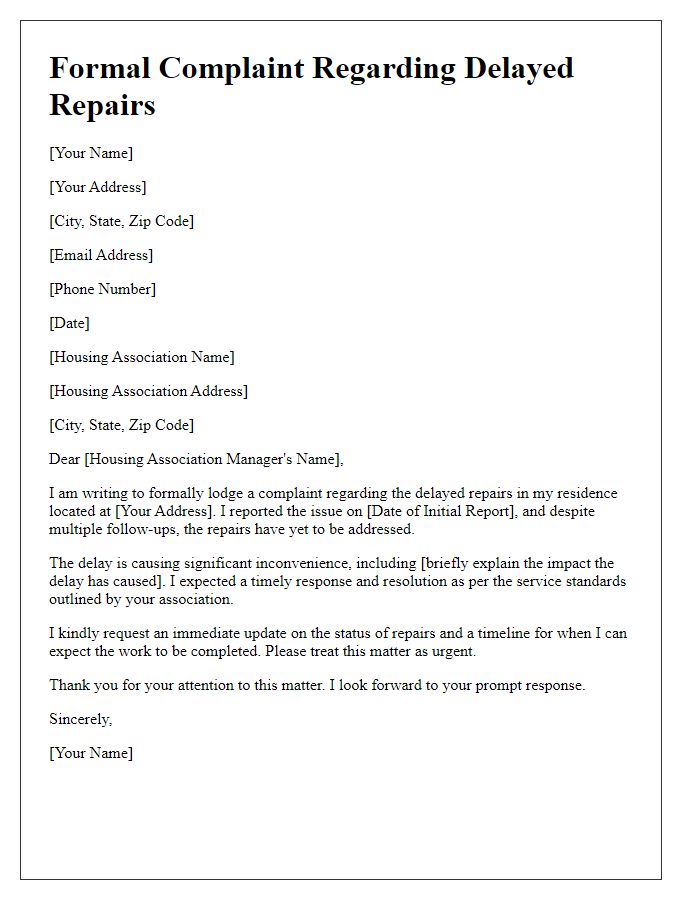
Letter template of formal complaint related to unfair tenancy policies of housing association.
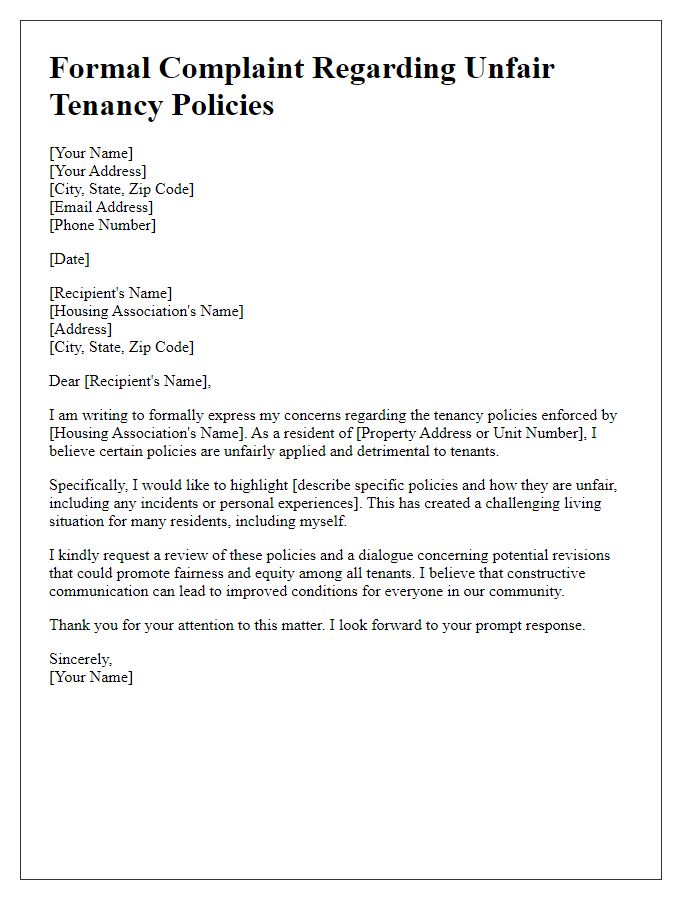
Letter template of formal complaint concerning unresolved maintenance issues with housing association.
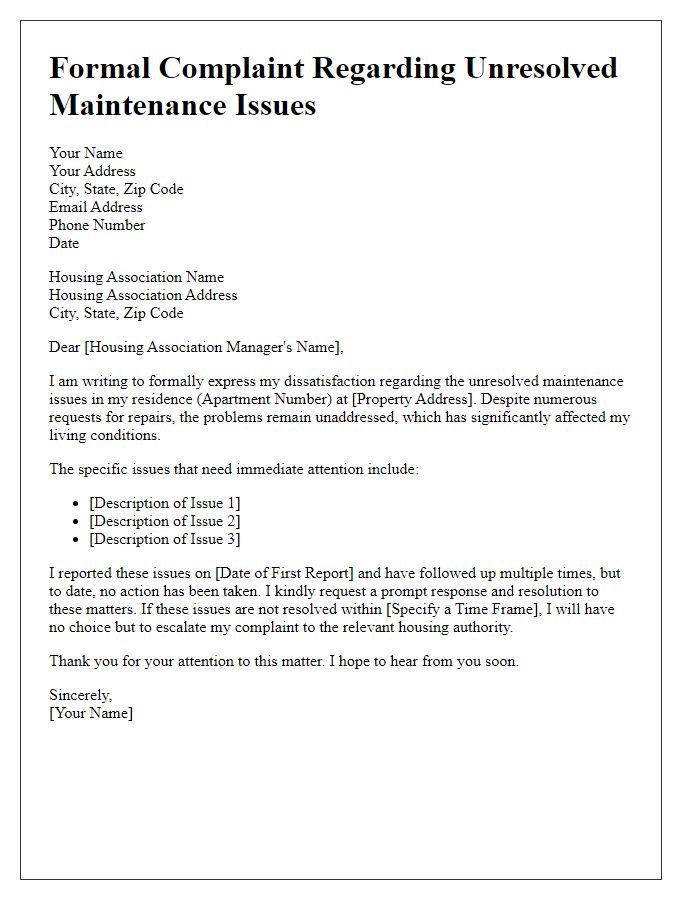
Letter template of formal complaint against housing association for harassment or discrimination.
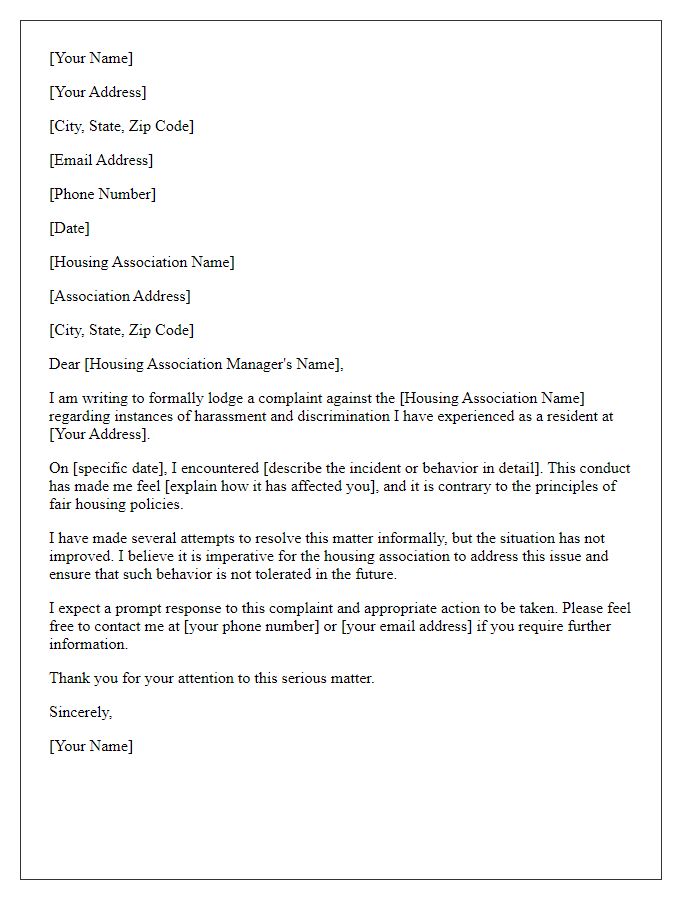
Letter template of formal complaint highlighting breaches in tenancy agreement by housing association.
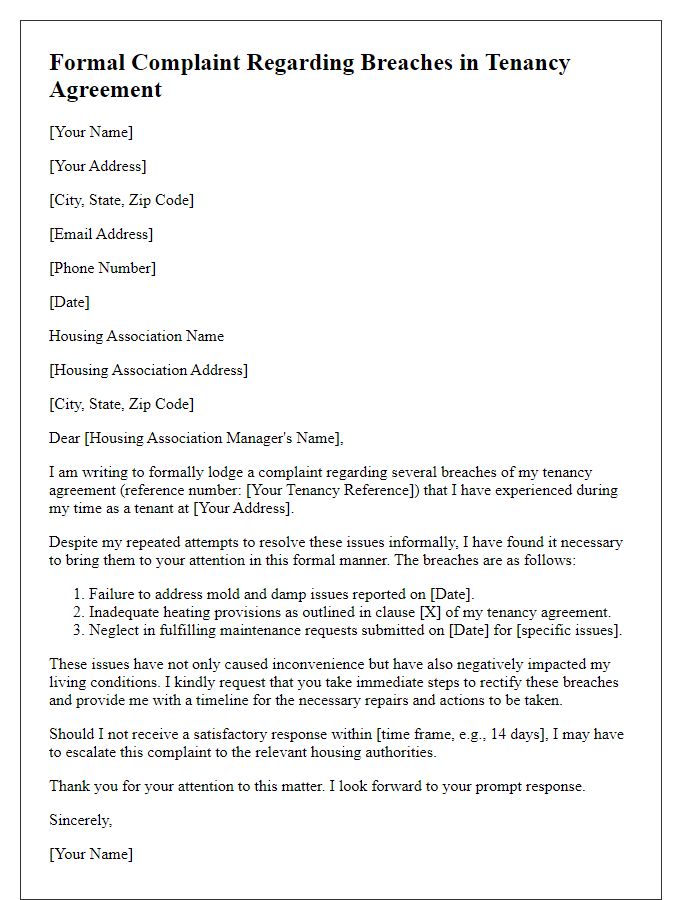
Letter template of formal complaint over insufficient communication from housing association.
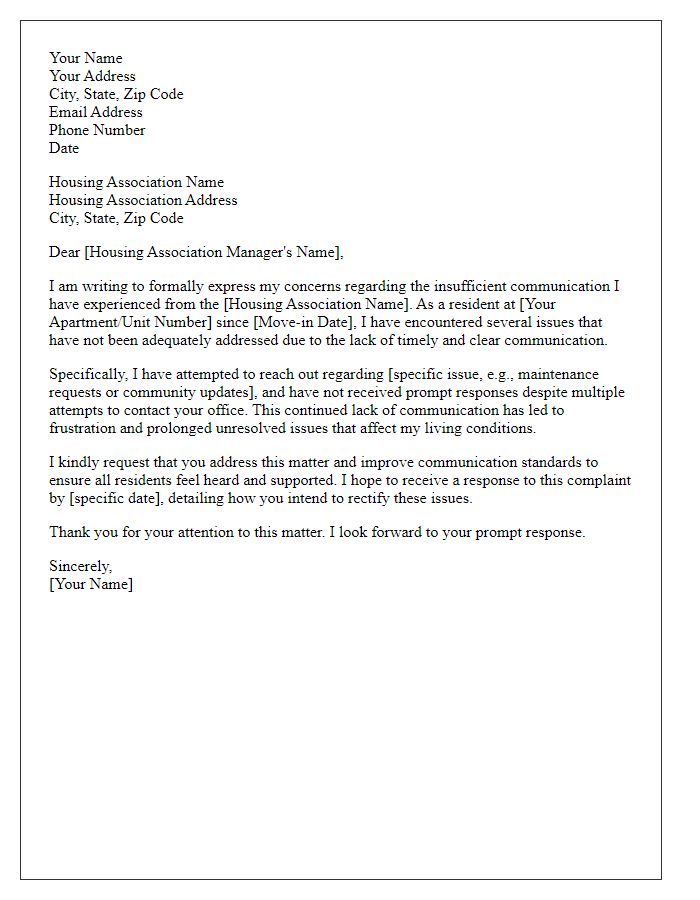
Letter template of formal complaint about safety concerns in housing association properties.
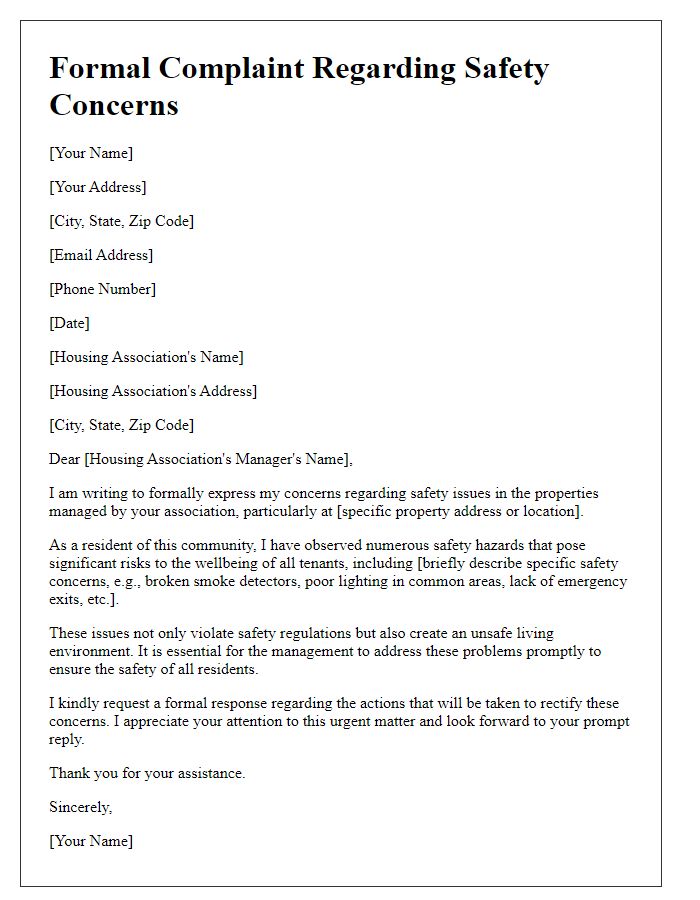
Letter template of formal complaint regarding excessive rent increases by housing association.
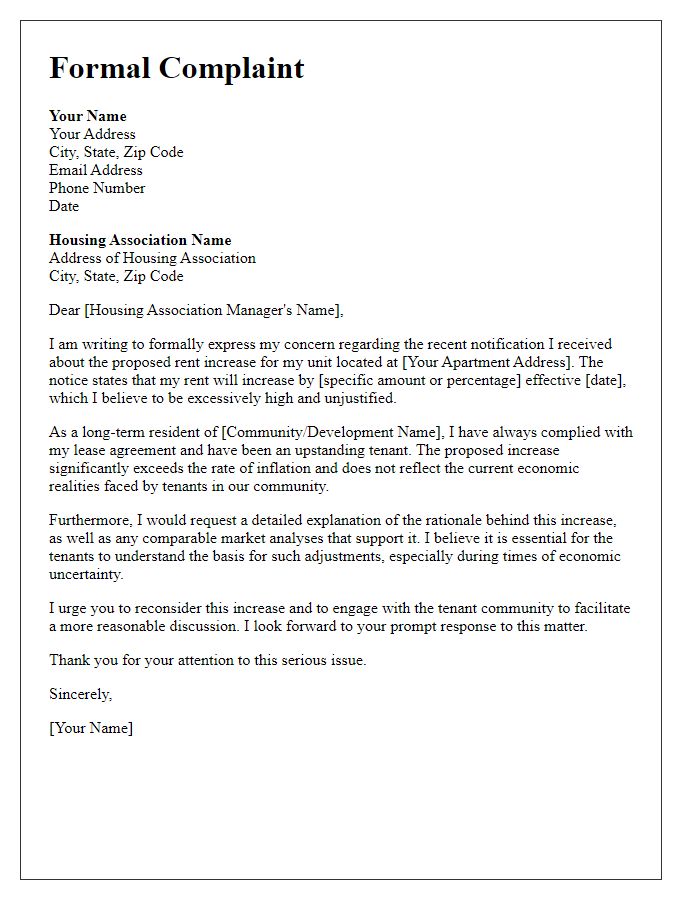

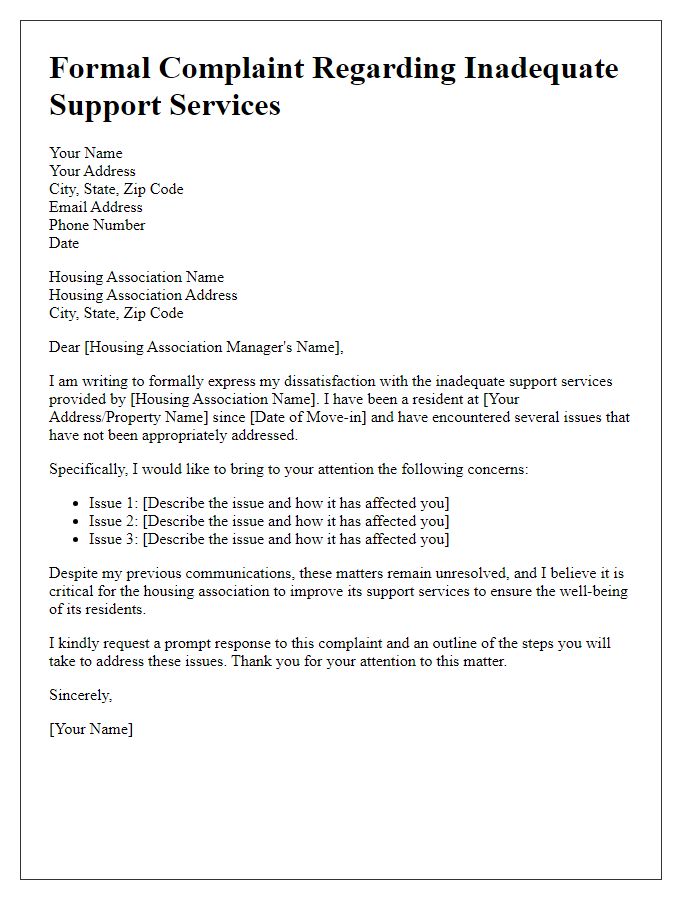

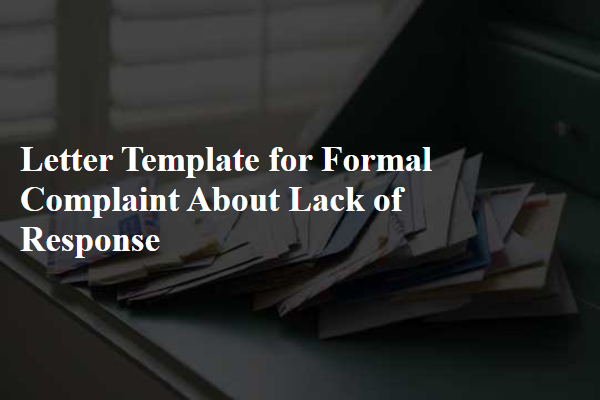
Comments